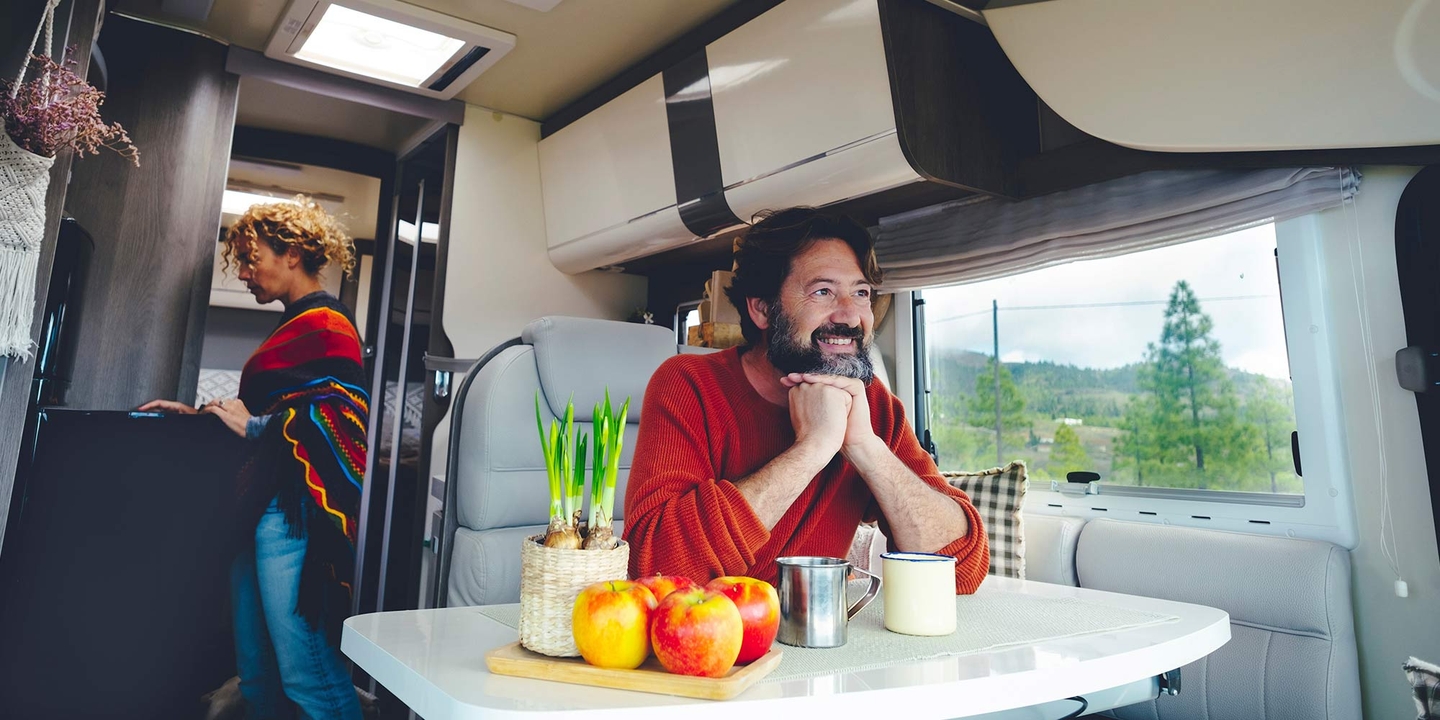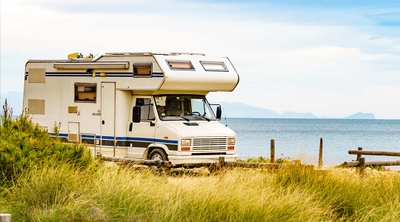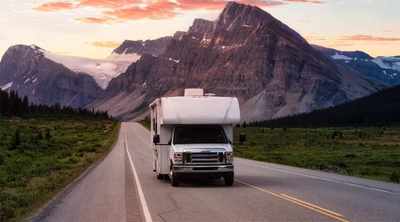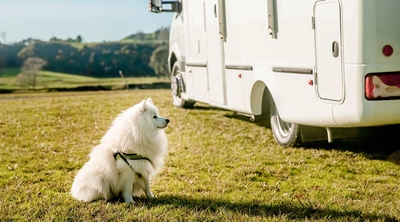How to live in an RV full-time
3 min read
Living in your RV full-time — either a motorhome or a travel trailer — as your permanent residence is easier than ever. But it does take planning, research, and an adventurous spirit. You’ll find useful tips here for spending long stretches out on the road in your RV and tips for staying parked in one place for an extended period.
Full-time RV living tips
Whether you park your RV at your favorite campground for six months, live in your RV year-round, or drive it from place to place, follow these tips for living full-time in your RV.
Consider your location
Finding a beautiful setting and parking your RV for an extended time is an excellent option for full-time RV living. Do you value the woods or wide-open spaces? Mountains or water? Or a combination of it all? These should factor into your thoughts, as should questions about the kind of community you’d like to live in, access to schools and other public services, and amenities like museums or malls.
Consider the cost
As you look for a place to settle, consider the cost of parking your RV and whether you can get a discount for longer bookings or full-season rates. When traveling and full-time living in your RV, consider how you will pay for tolls. In most places, credit and debit cards will do fine. But for everything from toll booths to laundromats, having cash and coins on hand can be very convenient.
Adopt the right state of mind
Living in an RV full-time means dealing with the unexpected. Things break; trips go differently than planned. You can get upset about these things or choose to roll with them and find ways to work around life’s little hiccups. Being flexible and solving problems is key to a smooth journey. This might be challenging if you prefer to avoid making repairs and doing maintenance yourself. You’ll need to take care of regular maintenance tasks or hire someone to do them for you.
Downsize your stuff
Not only will you have less space for your “stuff” in an RV if you’re living in it full-time, but you’ll also have less need for the kind of stuff you had in a house or apartment. If you forego a home entirely, you can get a storage space or ask friends and family to hang on to things of sentimental value for you, if necessary.
Because space is limited, you’ll want to make the most of it and ensure you have enough safe storage in your RV. You won’t be “stocking up” the way you might have in a house or apartment, but you’ll still want to ensure you can safely and neatly stow everything you’ve got.
Be prepared for all types of weather
When full-time rv living, make sure to have antifreeze on hand in winter. If you park your RV for a significant time, consider a temporary or permanent snow skirt to help insulate and protect pipes from freezing. A space heater is also a wonderful thing to have in a cold snap. Summer has its challenges when it comes to heat and humidity. Learn about how to control RV humidity.
Be as self-sufficient as possible
Adding solar energy panels can help reduce energy costs while parked long-term and make you more self-sufficient. If you rely on the internet for entertainment and communication, consider getting your own service. Some campgrounds have reliable wi-fi. Others don’t. It’s best to be prepared to handle your own internet needs. That might mean getting internet access through a satellite service, installing a booster to strengthen a campground service, or paying for a mobile hotspot service.
Prepare for boondocking
If you are living in an RV full-time, you may sometimes find yourself sleeping in your RV overnight without access to RV hookups — meaning you’ll have no running water or electricity. Also known as “boondocking,” it can be especially challenging in cold weather. You’ll greatly appreciate having warm clothes and sleeping gear on hand and comfortable sleeping places that don’t require bed extensions.
Prepare for travel
Before you take off for your next destination, ensure you have everything packed and stowed and that you’re not leaving anything important behind.
Map-related apps are the obvious ones here, as well as traffic-avoidance apps. Beyond that, apps that help you identify gas stations and prices on your route, and restaurants, truck stops, and even public bathrooms, can come in handy.
Stay connected to home
Bringing your pets for the ride can make your RV feel like a home away from home. And integrating pets into your RV is easy. Another way to stay connected when living in your RV full-time is to have your mail forwarded to you while you’re on the road. Some campgrounds will let you have mail sent to their front desk/office, but that’s not necessarily the norm. Learn how to live with pets in your RV and how to get mail to your RV when traveling.
Other considerations for living in an RV full-time
Whether you spend most of your time parked in a campground or out on the road if you live in your RV for six months or more, Progressive offers customized RV insurance policies for your adventurous life. Learn more about full-time RV insurance.




